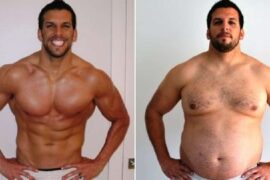Building muscles naturally requires a combination of effective training, proper rest, and a well-balanced diet rich in essential nutrients. While exercise is crucial for stimulating muscle growth, the role of nutrition cannot be overemphasized. Incorporating the right muscle foods into your diet provides your body with the building blocks it needs to repair, grow, and strengthen muscles. This guide explores how to boost your muscles naturally through proper nutrition and lifestyle choices.
1. Prioritize Protein-Rich Muscle Food
Protein is the foundation of muscle building. When you exercise, your muscles undergo microtears that require protein to repair and grow stronger. Including high-quality protein sources in your diet is essential for muscle gain.
Top Protein-Rich Muscle Foods:
Chicken Breast: Lean and packed with amino acids for muscle repair.
Eggs: A complete protein with leucine, essential for muscle synthesis.
Salmon: Provides omega-3 fatty acids and high-quality protein.
Greek Yogurt: Combines fast-digesting whey and slow-digesting casein proteins.
Lean Beef: Rich in iron, zinc, and B vitamins to support muscle growth.
Tip: Aim for at least 1.6 to 2.2 grams of protein per kilogram of body weight daily to optimize muscle growth.
2. Incorporate Healthy Carbohydrates for Energy
Carbohydrates are the primary energy source for intense workouts. Without sufficient carbs, your body may break down protein for energy, which can hinder muscle growth. Choosing the right carbs ensures you have enough fuel to perform at your best.
Best Carbohydrate Muscle Foods:
Sweet Potatoes: Provide complex carbs for sustained energy.
Brown Rice: Helps replenish glycogen stores after workouts.
Quinoa: A high-protein grain with all essential amino acids.
Oats: A slow-digesting carb that supports long-lasting energy.
Fruits: Bananas, berries, and oranges provide quick energy and antioxidants.
Tip: Consume carbs before and after workouts to maximize performance and recovery.
3. Don’t Skip Healthy Fats
Healthy fats are essential for hormone production, particularly testosterone, which plays a vital role in muscle growth. Omega-3 fatty acids also help reduce inflammation, promoting quicker recovery.
Muscle Foods Rich in Healthy Fats:
Avocados: Packed with monounsaturated fats and fiber.
Nuts and Seeds: Almonds, walnuts, and chia seeds are excellent sources of healthy fats.
Fatty Fish: Salmon, mackerel, and sardines provide omega-3 fatty acids.
Olive Oil: A heart-healthy fat that can be used in cooking or salad dressings.
Tip: About 20-35% of your daily calorie intake should come from healthy fats.
4. Hydrate for Optimal Muscle Function
Water is often overlooked in muscle-building conversations, but it is a critical component of muscle health. Dehydration can lead to muscle fatigue, reduced strength, and poor recovery.
Hydration Tips:
Drink water consistently throughout the day, not just during workouts.
Include water-rich muscle foods like cucumbers, watermelon, and oranges in your diet.
Replenish electrolytes lost during intense workouts with natural options like coconut water or a pinch of salt in your water.
Tip: Aim to drink at least 3 liters of water daily, adjusting for workout intensity and climate.
5. Utilize Muscle Foods for Recovery
Muscle recovery is just as important as the workout itself. Consuming the right muscle foods post-workout helps replenish energy stores and repair muscle tissue.
Best Post-Workout Muscle Foods:
Protein Shakes: Blend whey protein with a banana for a quick recovery drink.
Tuna with Whole-Grain Crackers: A perfect combination of protein and carbs.
Cottage Cheese with Pineapple: Casein protein aids in overnight recovery.
Hard-Boiled Eggs with Sweet Potatoes: A balanced post-workout meal.
Tip: Eat within 30–60 minutes after your workout to maximize nutrient absorption.
6. Focus on Micronutrients
While macronutrients (protein, carbs, fats) get the most attention, micronutrients are equally important for muscle growth and recovery. Vitamins and minerals support energy production, muscle contraction, and overall health.
Essential Micronutrients and Their Sources:
Magnesium: Found in spinach, nuts, and whole grains; helps with muscle contraction and relaxation.
Vitamin D: Eggs, fortified milk, and sunlight exposure boost muscle strength.
Calcium: Dairy products and leafy greens strengthen bones and support muscle function.
Iron: Lean meats and legumes improve oxygen delivery to muscles.
Tip: A diet rich in whole, unprocessed muscle foods naturally provides essential micronutrients.
7. Eat Small, Frequent Meals
Instead of three large meals, opt for 4–6 smaller meals throughout the day. This strategy helps maintain a steady supply of nutrients to your muscles and prevents overeating.
Example Meal Plan:
Breakfast: Scrambled eggs with spinach and whole-grain toast.
Snack: Greek yogurt with mixed berries.
Lunch: Grilled chicken breast with quinoa and steamed broccoli.
Snack: A handful of almonds and a banana.
Dinner: Baked salmon with sweet potatoes and asparagus.
Post-Dinner Snack: Cottage cheese with walnuts.
Tip: Ensure each meal includes a balance of protein, carbs, and healthy fats.
8. Get Enough Sleep
Muscles grow and recover during rest, particularly during deep sleep. Sleep deprivation can reduce muscle recovery, increase fatigue, and hinder performance.
Tips for Quality Sleep:
Aim for 7–9 hours of sleep per night.
Avoid caffeine and heavy meals close to bedtime.
Create a sleep-friendly environment by keeping your room dark and quiet.
Tip: Incorporate muscle foods like almonds or warm milk before bed to improve sleep quality.
9. Avoid Overtraining
Overtraining can lead to muscle fatigue, injury, and burnout. Balancing intense workouts with adequate rest is crucial for natural muscle growth.
Recovery Muscle Foods to Include:
Berries: High in antioxidants to reduce muscle inflammation.
Dark Chocolate: Contains flavonoids that improve blood flow to muscles.
Chia Seeds: Provide omega-3s and protein to support recovery.
Tip: Listen to your body and take rest days when needed.
Conclusion
Boosting your muscles naturally requires a holistic approach that combines consistent training, sufficient rest, and a nutrient-dense diet rich in muscle foods. By prioritizing lean proteins, healthy fats, complex carbohydrates, and essential micronutrients, you can optimize your muscle-building potential. Stay consistent, and remember that muscle growth is a gradual process that thrives on discipline and dedication.





